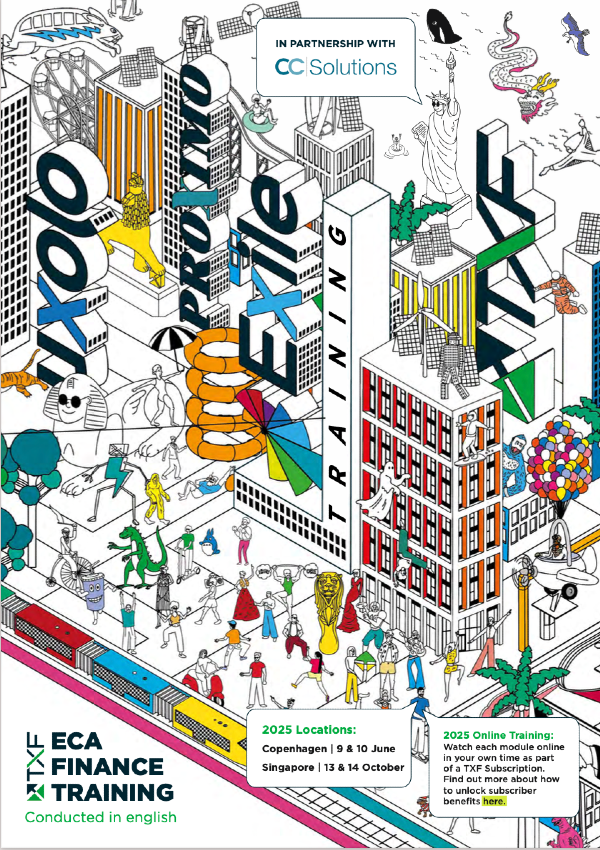Digitisation of receivables: In the spotlight at ITFA Edinburgh meeting
One of the many hot topics under the spotlight at the ITFA annual conference, this year held in Edinburgh, was the subject of digitisation and standardisation of receivables, the role that fintechs are now having in that space and the impetus being given to the use of platforms for the distribution of trade-related assets on the secondary market.

Receivables platforms have been in the market for some time, but session moderator ITFA chairman, Sean Edwards, asserted that, in a crowded fintech ecosystem, for many it was not clear how they worked and what benefits they are bringing in for banks.
Responding to this, Glenn Kocher of LiquidX, an electronic platform for working capital and cash flow optimisation, said that it was still early days in the space, although a lot more was starting to happen now. He noted that the working capital platform C2FO had been very successful in the corporate sphere. In addition, he also pointed to Greensill which has a partnership with Thalia, and which he stated had a “powerful differentiated model”.
“A lot of these companies have started out with their own proposition, but have evolved and/or have been complemented by others,” said Kocher. He also noted that there were two distinctive types of classes; those with a large distribution in bases and desks (and there are only a few examples of these), and the rest – those that are looking to complement the market. The latter provide significant operational efficiency and the benefit of new technology.
On the topic of the actual distribution of assets, moderator Edwards turned to Kah Chye Tan of Capital & Credit Risk Management (CCRManager), which is involved in selling trade assets to other banks through a digitised platform. Asked if the model is trying to make the distribution of trade assets easier for the banks, Tan responded: “I don’t think there is silver bullet. LiquidX represents an important proposition in the primary link of the transaction. That link is important. Banks do not have unlimited capacity so the sell-down is important.”
Tan noted that there is estimated to be around $1.7 trillion of cross-border trade debt capacity being traded annually. And with that huge volume, there needed to be much better governance standards involved. In addition, because there were still only a handful of trade fund managers investing in trade finance, there were various things that the industry needed to do and provide to help make the asset class more attractive, including:
- Better knowledge of market pricing before an investor will invest. Fund managers are unlikely to put up with such an opaque market;
- Better transparency of the players involved – including credit history;
- Better cycle and packages of transactions;
- Proper custodian regulation. Currently, the Chinese walls that operate in the trade finance space are not as disciplined as they are in the capital markets and this needs to improve. There needs to be an independent market.
Taking the debate on, Richard Tynan of TradeIX stated that his company had had to build a ‘rules engine’ in order to deal with securitisation or synthetic distribution. He stated: “We are trying to connect all the different ecosystems because there remains an absence of a single standardised asset class. In three years we will be a very different proposition.”
Moderator Edwards pointed out that there were legal characteristics to a receivable that may not lend itself to secondary trading. Tynan responded by saying that what he was seeing was not so much around distribution but around the internationalisation of receivables. However, he pointed to the great strides being made by the R3 financial consortium working on this with blockchain applications. Kocher pointed out that the technology was acting as the enabler in the absence of a proper legal framework.
Turning to Euroclear’s Angus Scott, Edwards asked: “Trade instruments are many. What type of trade settlements do you think you can deal with, and what do you think the challenge is?
Tynan responded: “Many of the challenges revolve around non-standardisation. Many of these assets are small-ticket, short-lived and are non-complex – but there are many different forms of them. So how should we deal with them?
First, through standardisation – but this is going to take a long period of time. Second, with technology. The technologies available today reduce the cost of dealing with the complexity. Artificial intelligence (AI) is much cheaper now. And both of these two elements are starting to come together in this space.”
He also noted that there were major issues still to look at closely – not least minimising risk, the issue of liquidity, and the custodian system – but with these in place there was good reason to be optimistic about the overall evolution. “We are a facilitator operating in many different environments. It is early days, but we believe we will be able to make a difference. So, it is interesting times ahead,” he declared.
Edwards remarked: “New technology does give us hope that we can deal with assets in a way that we haven’t before – to enable the digitisation of trade receivables. Will we wake up and find that it has all changed?”
Scott responded: “Euroclear is a great big database. The promise of blockchain is that it can automate many of the processes needed. It’s still a system that has to built, tested and proved. It is not a panacea.”
The 44th Annual International Trade and Forfaiting Association (ITFA) held in Edinburgh this year, brought together 200+ delegates from all around the world - bankers, financiers, insurers, lawyers, fintechs for two days of debate, meetings, and networking together with organised functions. It is one of the best gatherings of its kind. Next year the event takes place in September in Cape Town, South Africa. See you there!





